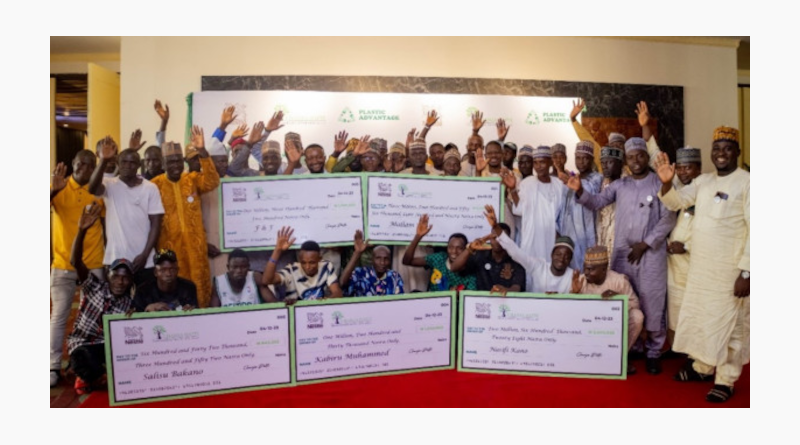Nestlé advances 50% rPET inclusion in Nigeria
Nestlé Nigeria has become the first company in the country to incorporate recycled PET (rPET) at a 50% inclusion rate in its bottled water brands, representing the highest level currently permitted under Nigerian regulations. The initiative marks a significant milestone for circular packaging in Nigeria, reducing dependence on virgin plastics while supporting the national circular economy agenda. This achievement was originally reported by the business intelligence platform Zawya.
Nigeria generates an estimated 2.5 million tonnes of plastic waste each year overall, with less than 10% effectively recycled. Across West Africa, more than 80% of plastic waste remains mismanaged, posing risks to public health, biodiversity, and coastal economies. In response, the private sector is taking an increasingly active role in addressing the country’s plastic challenge, not only through corporate initiatives but also by shaping the systems that make circularity possible.
A key example of such collaboration is the Food and Beverage Recycling Alliance (FBRA), a coalition of companies working to accelerate sustainable waste management across Nigeria. Established as the country’s first Producer Responsibility Organisation (PRO), FBRA advances Extended Producer Responsibility (EPR) by ensuring that producers and importers of packaged goods take active responsibility for the post-consumer stage of their packaging materials. Through partnerships with regulators such as the National Environmental Standards and Regulations Enforcement Agency (NESREA), FBRA has helped develop national policies, standard operating frameworks, and recycling models that are now being replicated across sectors.
FBRA’s strength lies in collective responsibility. Its member companies fund and expand recovery systems, build scalable solutions, and create demand for recycled materials, turning plastic waste into economic opportunity for thousands of Nigerians. Nestlé Nigeria, a founding FBRA member, has played a central role in this effort. Plastics recovered through its community-based recycling initiatives are now redirected into the 50% rPET inclusion project for its water brands – a first-of-its-kind achievement in Nigeria. Complementing this, the Nestlé Employee Plastics Collection Scheme encourages staff to bring recyclables to the office, promoting sustainable behaviour and supporting the company’s vision of a waste-free future.
The progress achieved by FBRA, Nestlé, and other industry leaders demonstrates that sustainability advances most effectively through collaboration. Shared responsibility, clear policy direction, and private-sector investment are helping Nigeria build a circular economy capable of turning plastic waste into social and economic value.

